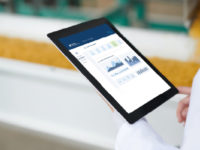Digitalisation in the food supply chain is going to define progress and advancement in the industry for the next decade to come and beyond.
Intelligent management systems are on track to exact revolutionary improvements on the chaotic and complex landscape between farm and fork, significantly reducing issues with food waste, disruption to food supply and traceability of produce – and much more beyond.
As new solutions propagate throughout the food industry, participants at all levels – from producers through to retailers – will need to make critical investments in their data infrastructure in order to take full advantage of emerging trends.
Among the challenges that Australian food businesses face is that the traditional ERP systems they use are generally focused on finances and production processes only. As developments in the industry signal a need for investment in digitising supplier compliance, quality checks, procurement, ordering, CSR, traceability, reporting & analytics and so on, these firms often find that their existing systems are not designed to deal with such areas. What’s more, the cost of tasking providers with implementing new software fixes to onboard these important functions rarely adds up in terms of ROI. Many companies in this situation have resorted to sticking with pen and paper, spreadsheets, and Microsoft Access databases, because the IT spend on ERP solutions in these areas cannot be justified.
Nonetheless, there has been much focus in Australia around managing risk and improving food safety as well as the traceability of food, especially given the catastrophic losses to the industry that can occur when product recalls are necessitated due to contamination or malfeasance – as in the “needles in strawberries” case that affected retailers throughout the country. The Australian government has made significant investments in these areas within the domestic industry as well as with exports, and there has been a lot of talk around traceability systems, blockchain solutions and the like. These solutions, however, can only be fully utilised when the supply chain has digitally transformed its internal processes.
Food supply data needs to be made more readily accessible in electronic systems, captured at all points via computers, tablets, IoT devices and so on. This means that the first step in helping companies to digitise their operations lies in enabling them to move from documents and spreadsheets to systemised data capture, management and reporting in a cost-effective way – and ideally in a manner that can still be linked with their existing ERP systems wherever necessary, thus resolving a particular pain point for many Australian firms.
A major focus of Foods Connected lies in providing functionally rich, highly configurable digital transformation solutions to food industry players, with one-stop-shop software capable of managing all teams within businesses and their suppliers in order to decrease risk, improve factory performance, eliminate time lost searching through paperwork, improve food safety and meet traceability requirements in a timely manner.
Our tools are designed for rapid optimisation, tailored to specific company needs, and built by food industry professionals for food industry professionals, with food process requirements carefully considered and built in at the core. This is a much more cost, time effective and optimised suite of tools versus the wait and cost endured when ERP Software providers must add functionality to make the product fit for purpose in the food industry.
Those looking to implement time saving, risk reducing measures and keep a step ahead of the competition will find themselves increasingly in need of such tools.
Read more by downloading information about the digital supply chain or contact Tom Redden, Head of Business APAC, for more information, tel: +61 400 819 899





